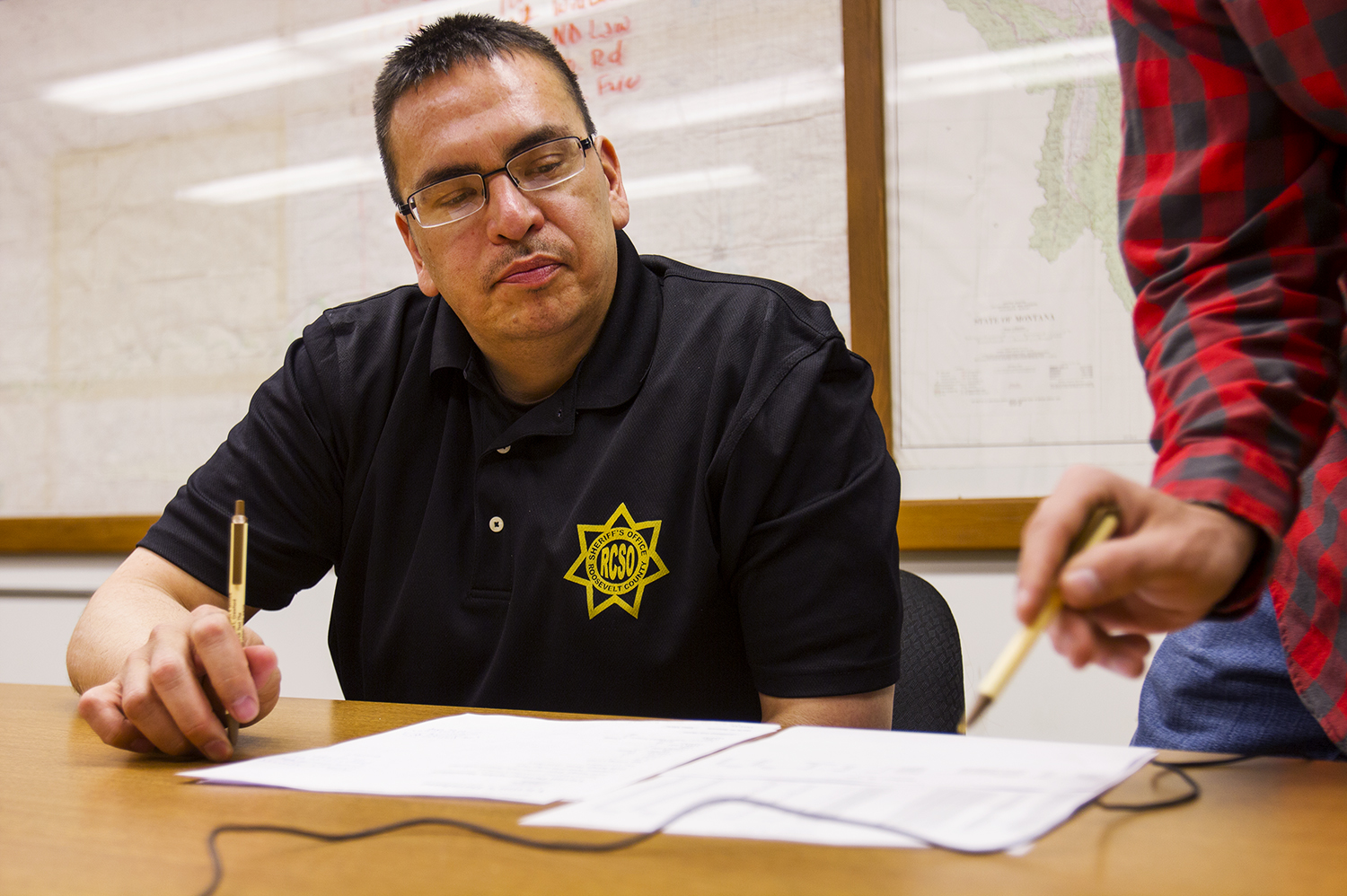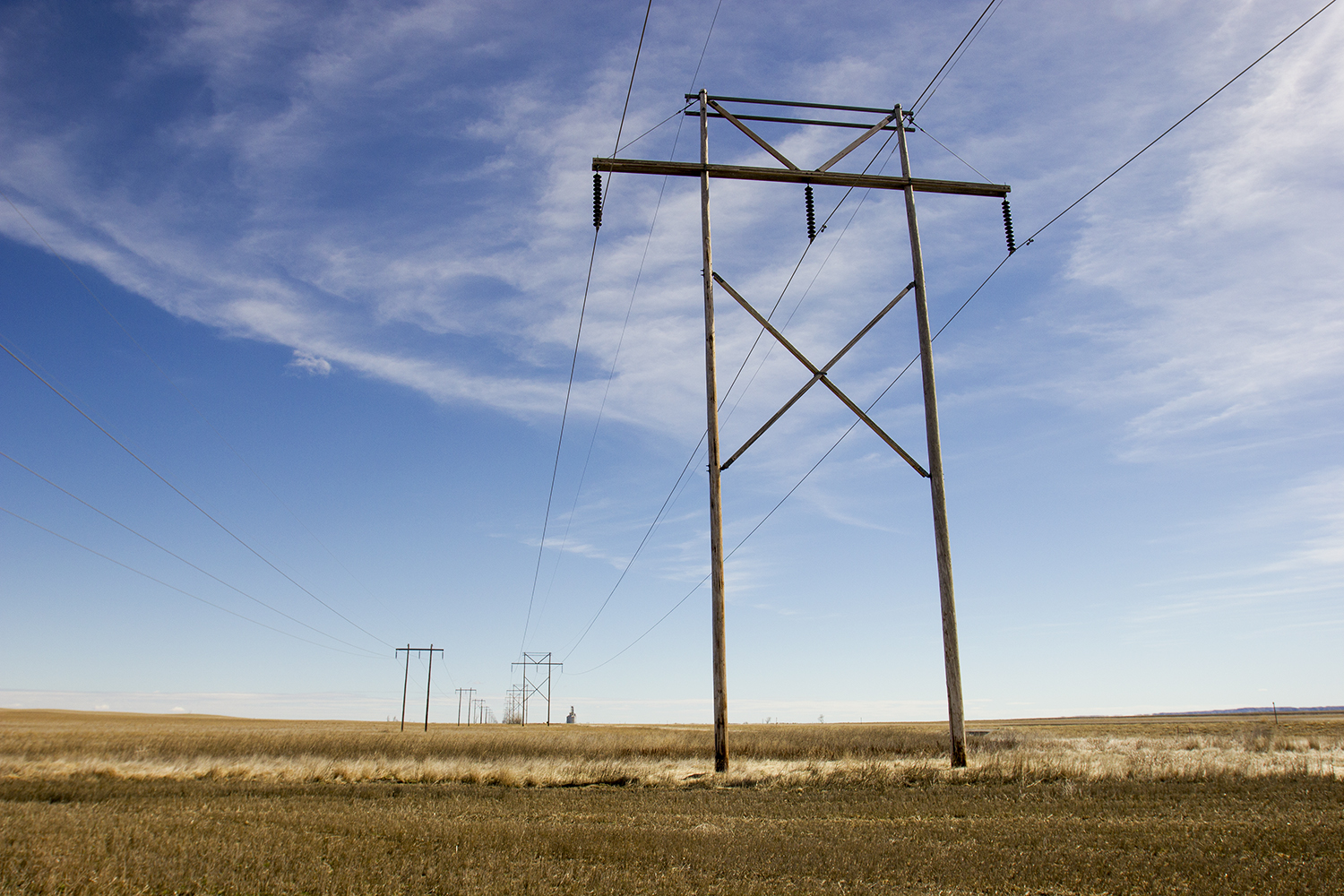Story by Jesse Flickinger, photos by Brontë Wittpenn and Evan Frost
She starts off fine. Talking about her abusive relationships as a teenager and how she got herself into this one. But there is a certain weakness in her voice, a tremor at first, breaking the flow. Then it becomes stronger. The words have more hesitation.
She sets her glasses on her desk. Her breathing slows. Her eyes are about to give. This is the part of the story Toni Plummer-Alvernaz doesn’t like to tell.
It comes out in staccato details: There was a basement. There were five men. Her head hurt a lot.
Sitting in her office at the Montana Native Women’s Coalition in Glasgow, Montana, Plummer-Alvernaz recounted the horror she went through when she was sexually assaulted at 21-years-old in the mid-‘80s.
The boiler broke earlier this year, so there’s mugginess about the office that only makes the retelling worse. The trains passing by and the industrial fans are the only sounds filling the silence between Plummer-Alvernaz’s words.
Her mother Lillian sat next to an open screen door to the right of her daughter. Brought in for emotional support, she put on a bulldog-like demeanor, occasionally looking outside as her daughter’s story went on, as if looking away from the details she knew were coming.
“And what ensued after that was all of those men came down there,” said Plummer-Alvernaz, breaking the silence. “And some really, super bad things happened to me.”
Enlarge
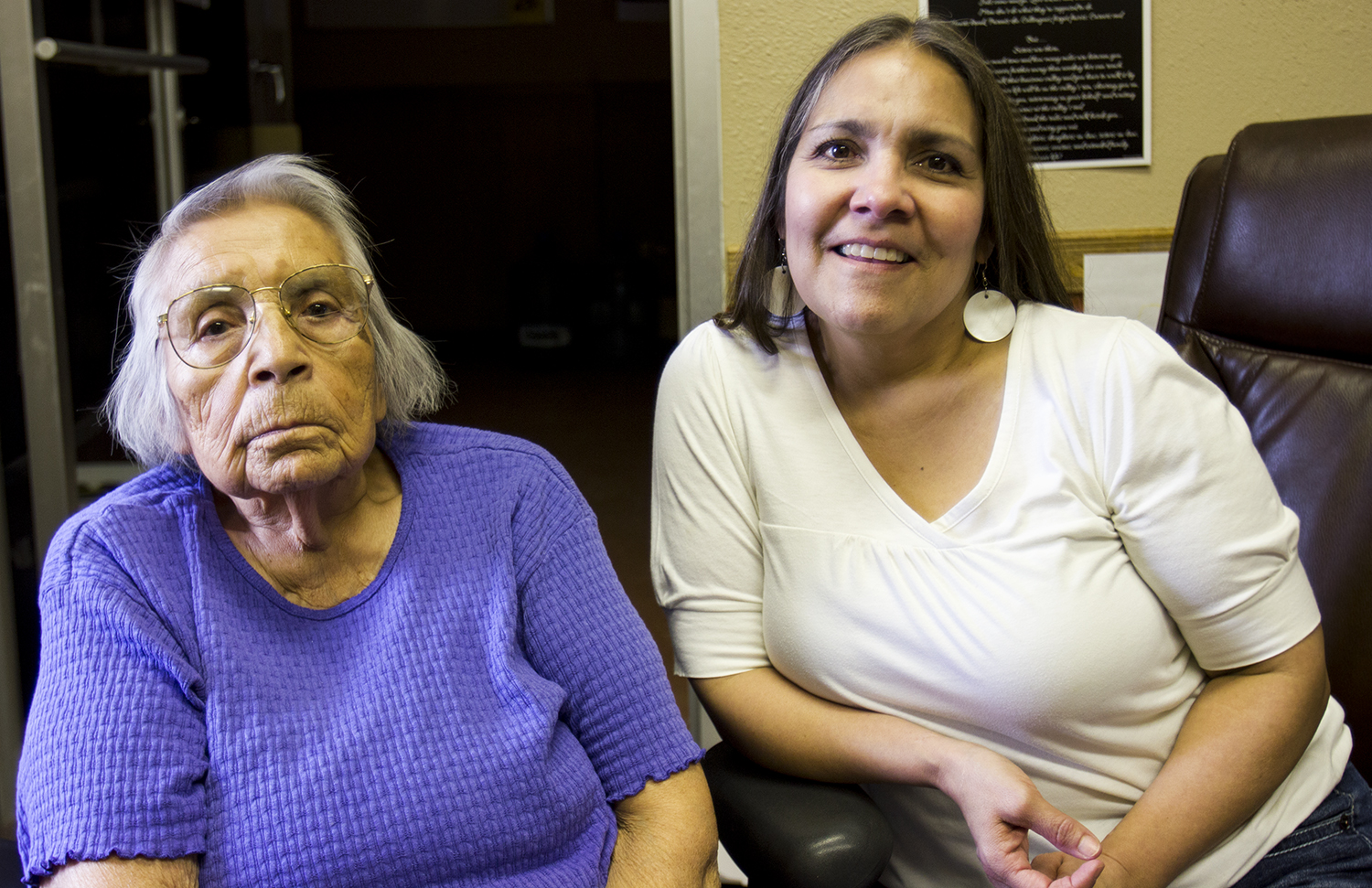
She’d been kicked in the head, she had a concussion and she couldn’t hear well—the scar tissue from the blow still affects her hearing today.
This is the part where Lillian, a survivor of intimate violence herself, begins to motion with her hands in an X-like fashion. She wants her daughter to quit talking. Plummer-Alvernaz doesn’t stop, though.
She says she was raped several times over the span of nearly a week by five different men, trapped in the basement of a Billings home, until one of the men let her escape.
“I could see it in his eyes,” Plummer-Alvernaz said. “I knew he would be the one, and they just wouldn’t stop, and one night he did. He busted out the basement window and he helped me go. I got out and he said, ‘Run and don’t look back, just keep going.’ So I did.”
That was nearly 30 years ago.
Now she serves as the executive director for one of the few resources for Native American women in Montana that helps those who share similar experiences. However, not more than a 15-minute drive east of the coalition’s headquarters sits the Fort Peck Indian Reservation, one of the areas most in need of Plummer-Alvernaz’s work.
According to national estimates from the United States Department of Justice, one in three Native American women will report being raped during their lifetime. Three in five will be victims of domestic violence.
On the Fort Peck reservation, those estimates are nearly guarantees.
Though the reservation holds slightly more than 10,000 people, with roughly 7,000 being Native American, the local police, tribal police and sheriff’s department are stretched to their breaking points. They’re responding to one or two new cases of domestic violence a day.
Victim coordinators in Wolf Point are working overtime to keep women safe and away from their abusers, sometimes driving hundreds of miles across the reservation and state daily.
Women shelters on the reservations are taking in more cases than they can handle because of victims who fear going to the police.
There are dozens of theories about why domestic violence is rampant in many Native American communities. Some argue it’s the result of substance abuse. Others say it’s the outcome of uprooting a way of life.
The fact remains, domestic violence is a generational issue. Across the desolate landscape and arrays of power lines in the Northeastern Montana plains, violence against women infests the reservation.
But with the introduction of new legal resources in the form of a renewed Violence Against Women Act, a committed community of support workers on the reservation and one family’s generational battle to ensure it doesn’t reach the next generation, there’s now more hope to the fight.
Enlarge
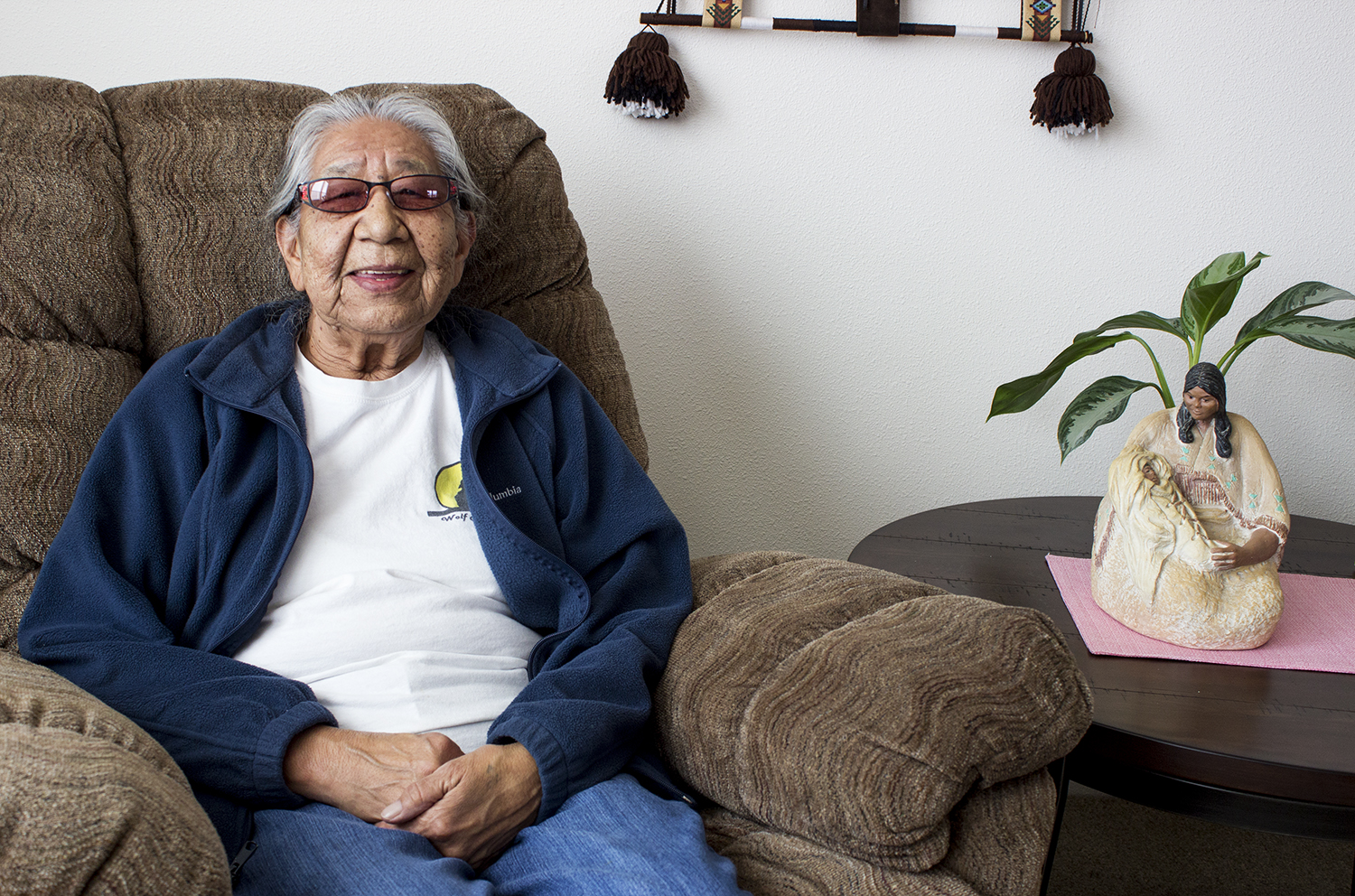
IT’S CLEAR to Tribal Elder Barbara Birdsbill that a generational problem of violence toward women on the reservation isn’t slowing down. In fact, she said it’s increasing.
Birdsbill has been a part of Wolf Point for much of its existence. She’s the proud owner of the second Post Office Box in the entire town. She knows a good bit about the reservation’s history of violence.
“We had violence against women way back then,” Birdsbill said. “It’s not just today, it was back then, but at that time, we didn’t have none of the programs they have now.”
Birdsbill was 11 when she first encountered it.
Living with her grandma at the time, the two traveled up to the Hi-Line to buy bread from the bread truck. When they returned without the right bread rolls, her grandfather was not happy.
He asked if they had bought rolls with a certain kind of frosting. Her grandma said she hadn’t because the truck didn’t have any. He slapped her hard across the face.
“That’s the first time I’ve seen anything like that where anybody had got hit, especially hitting my grandma,” Birdsbill said. “So that really, really scared me.”
Her grandmother would go on to receive more vicious treatment later in life, including being dragged by a rope while her grandfather was on horseback. Later in life, Birdsbill would become a victim herself, before finally leaving her abuser.
Now she volunteers once or twice a week at the Family Violence Resource Center in Wolf Point, an advocacy and women’s center. She helps transport women to court, and, if needed, she relocates them off the reservation.
Enlarge
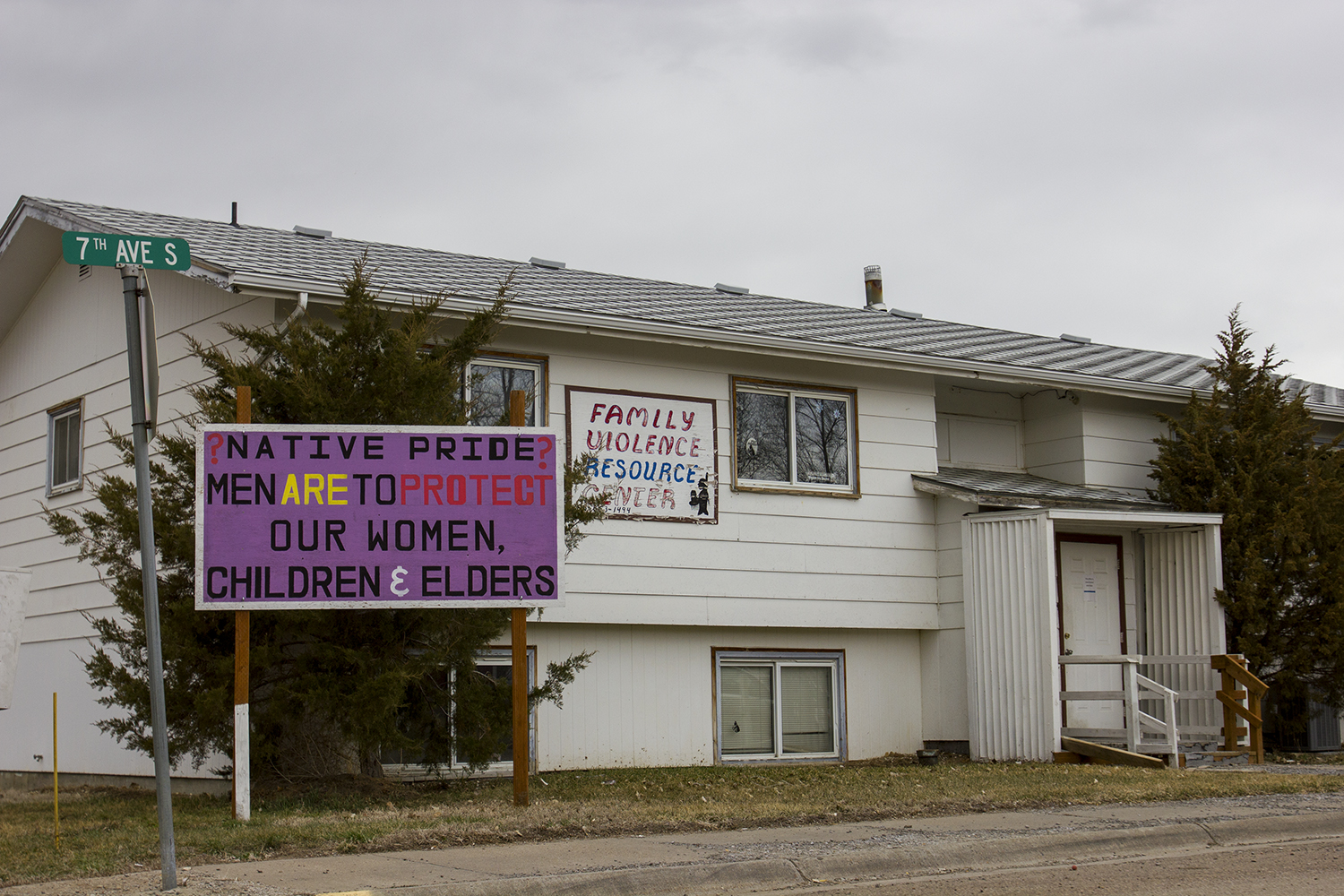
“Oh, everyday somebody is coming in,” Birdsbill said. “It’s gotten worse in my opinion to this day because there’s so many things that have changed.”
According to a report funded by the U.S. Department of Human Health and Services, the abuse of Indian women and children can be traced to the introduction of Western European lifestyles into Native American culture
Resources for women affected by domestic violence and sexual assault are now more present on the reservation than when Birdsbill was growing up, but they’re still spread thin.
Tina Bets His Medicine, a Northeast Montana victim witness coordinator, has worked in the Wolf Point sheriff’s department for the past 25 years. She knows the reservation needs help. In the last four months, she has been working with a new victim nearly every day.
The service calls have become increasingly more severe over the years, Bets His Medicine said. “A call down in Froid, Bainville or Culbertson was just somebody’s dogs running loose or kids spinning brodies at the school ground or something pretty minor,” she said. “Now we’re getting a lot more calls down there with domestic violence, sexual assault and all kinds of things going on.”
But help is hard to provide given she shares the only paid coordinator position in the area with another woman. The hours aren’t easy either, especially when they’re off-the-clock. The Sunday before sitting for an interview, Bets His Medicine spent a late night at the hospital with a victim.
Stretching the position’s 40 hours between two people is difficult when two different clients have court in both Wolf Point and Poplar simultaneously. A coordinator can only appear at one with how the hours are split.
“There’s a lot of driving as you can imagine,” Bets His Medicine said. “We’re kind of in the middle of nowhere. All the resources are kind of stretched out.”
Resources are strained in other ways as well. Roosevelt County Undersheriff John Summers has dealt with the same problems since he started as a tribal police officer back in 1997.
In his department, Summers said he responds to around two domestic violence cases daily, and some days more. He’s the first to admit that the response times aren’t laudable.
“We have a 13-man department, not counting the sheriff and I, so you add us to the mix and there’s only 16 administrators,” Summers said. “We have to cover a big swath of country.”
The reservation covers almost two million acres of land, with Roosevelt County responsible for over 75 percent of it. Being based in Wolf Point means it can take a while to get to the eastern side of the county where, just outside the reservation, the Bakken oil boom has brought more unrest.
“The Bakken is providing new opportunities to work, but it’s also bringing in the criminal element,” Summers said. “Now deputies on the eastern part of the county can’t keep up.”
And once they get there, there’s no telling if they’ll be able to hold the offenders. The jail is often full, so Summers has had to send some inmates to Great Falls. It’s not cheap.
“There’s still a lot of work to do,” Summers said.
Enlarge
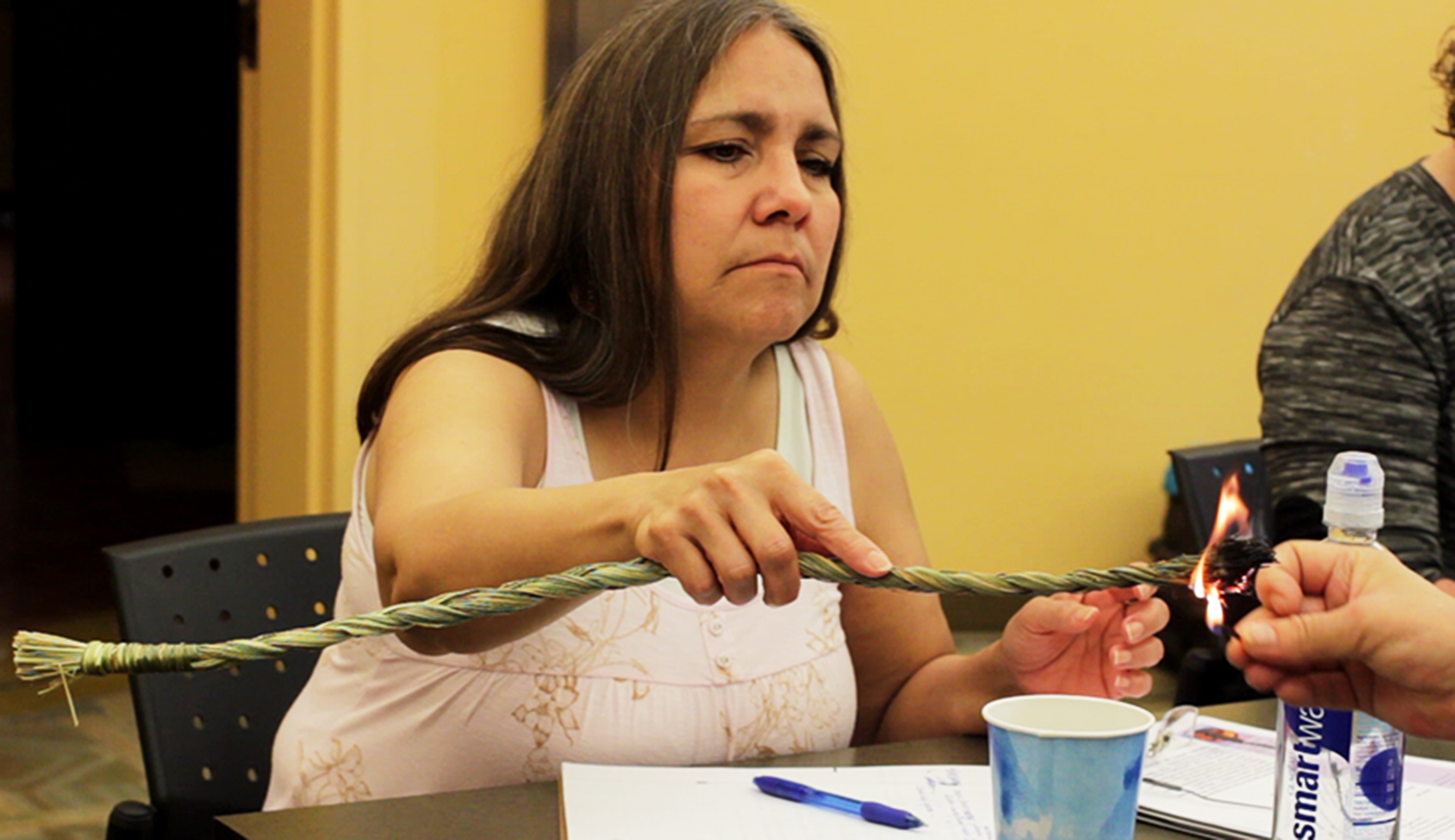
FOR YEARS she joked with friends that she had a “beat me” sign on her forehead.
Born in Poplar, Plummer-Alvernaz grew up on and off the reservation in Glasgow. When she was 15, she was introduced to the kind of relationships and violent culture that eventually lead to her hostage experience.
“There’s big chunks of time after that I still don’t remember,” said Plummer-Alvernaz on her assault. “I never told [my family] all what had happened to me because I was so ashamed.”
A rape kit was done shortly after, but Plummer-Alvernaz never pursued legal action out of fear and shame.
“He busted out the basement window and he helped me go. I got out and he said, ‘Run and don’t look back, just keep going. So I did.’”
After escaping, Plummer-Alvernaz spent time recovering back home. She said her mom and brothers helped her feel safe. When she finally got the nerve to return to work as a waitress, she encountered the men who took her hostage again.
“I went there and I knew they were there, and they turned around,” Plummer-Alvernaz said. “I could just feel them, they’d found me. I freaked out and knew I had to leave.”
She moved to Browning shortly after. Plummer-Alvernaz didn’t know if she’d ever be able to recover. She considered death as a real option. So she made a promise.
“I asked the Creator to heal me and to make me whole as a Native woman,” Plummer-Alvernaz said, “and that if He did, I would dedicate my life to Native women and children for the rest of my life.”
And she’s kept that promise.
Since its inception in 2007, the Montana Native Women’s Coalition has assisted women across Montana in coordinating help for victims and training advocates. Plummer-Alvernaz has served as the executive director since 2011.
“I think she really, really has a passion for this kind of work and she’s really dedicated her life to women and children,” said Brady Funk, a coordinator with the Montana Native Women’s Coalition.
Enlarge
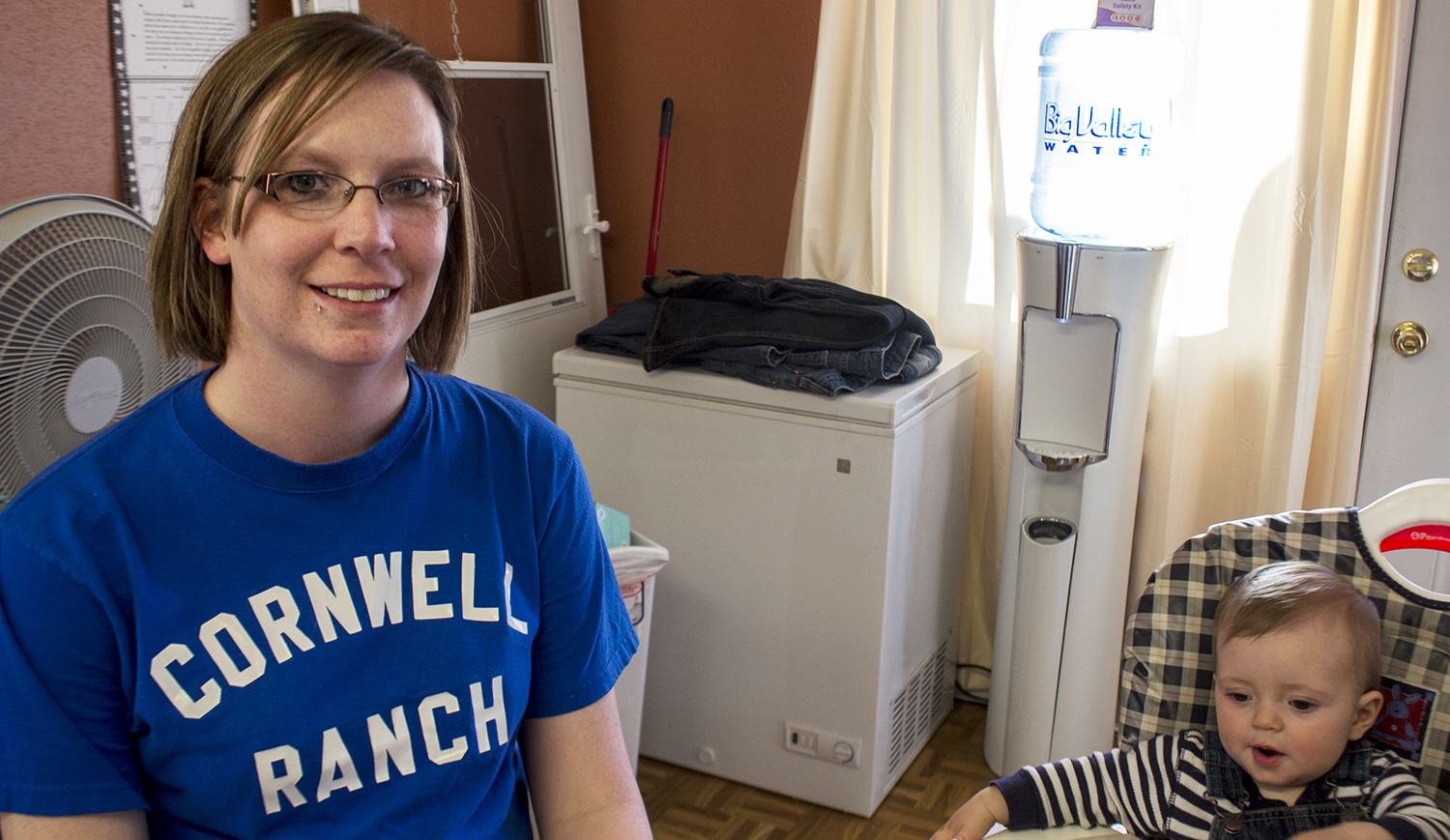
BEING IN a room with Lillian Alvernaz, it’s easy to tell there’s a fire about her. Her confidence is tangible. She’s named after her grandmother, but Alvernaz gets it from Toni.
Growing up in Glasgow, and a proud Assiniboine-Sioux woman, Alvernaz was motivated by her mother and her grandmother’s stories of abuse, stories she didn’t know until high school. Once Alvernaz saw her mom’s work, she said she dedicated herself to breaking the generational violence problem in her family.
“It had never occurred to me that my mom was a victim or survivor of any sort,” Alvernaz said. “It was really mind-blowing because I had no idea. Just no idea. It never occurred to me to ask because she’s such a strong amazing woman that I never thought anything like that had happened to her.”
Because of her mother’s experience, Alvernaz has concentrated her life toward helping Native American women.
“She’s transformed, (her experience), into something beautiful, empowering and strong,” Alvernaz said. “I feel like you can’t really help others unless you’ve experienced it, so she has a special place in her heart when she does work with women and survivors.”
Alvernaz has focused on furthering her education, graduating in 2013 from the University of Montana with a double major in social work and Native American studies. She will be attending the University of Montana School of Law this coming fall.
Alvernaz is changing her family’s stark history with violence with her education, having worked to empower Native American women with her mother since high school. But even in law school, she runs into ignorance about how to help Native Americans.
During a recent law school open house, Alvernaz discussed why she was going to Montana for her Indian Law certificate during a reception with an older law student.
The student sat down his drink and proudly remarked he was doing the same, but that Alvernaz would be the one getting all the scholarships.
Growing up near Seattle and the Snoqualmie Tribe, he said he saw that it took a white man to help out Native American communities with their problems because they sure weren’t going to do it themselves.
“That’s really irritating because it’s not about scholarships,” said Alvernaz later about the conversation. “It’s about the whole life experience and the whole everything behind it.”
This is the part where Lillian smiled.
Enlarge
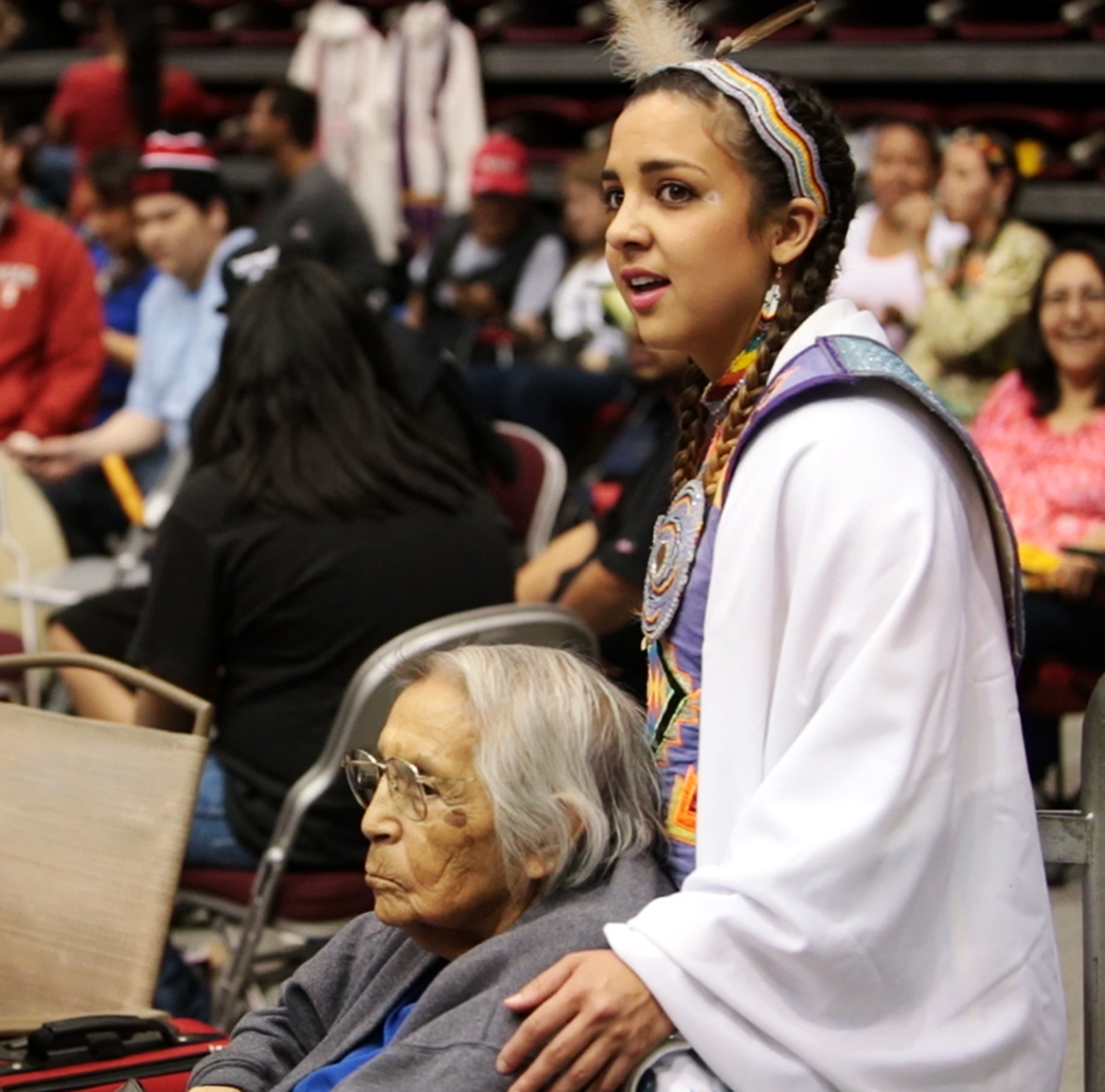
Alvernaz is determined to help advocate for Native American women on the Fort Peck reservation with her legal education. Alvernaz said she hears often how the Bakken oil boom is amplifying violence toward women on the reservation.
“A lot of the women there are being trafficked, raped, and stolen,” Alvernaz said, “and that’s very scary because tribal programs and Native programs haven’t received funding yet to aid all these women.”
With more than 560 federally recognized tribes, there are only 26 Native American-specific shelters in existence today, with only a few more in development. Plummer-Alvernaz said that as of last year, there were only 14 federally funded tribal coalitions.
To Lillian, many of the problems with domestic violence on the reservation also date back to the boarding school-era on the reservation.
“It’s not only generational from boarding school, but generational in that if a kid sees his mom hit, he’s going to grow up a lot more likely to do the same,” Alvernaz said.
The practice of forced removal and abuses in boarding schools is believed to be one of the main reasons for the introduction of domestic violence on reservations.
“I feel it’s such a huge problem,” Alvernaz said, “and that it stems from so many different things, that we just need to tackle it right now.”
This is the part where Toni Plummer-Alvernaz smiled.
“For me, there’s a certain comfort in knowing there’s a new generation of women stepping forward to do this kind of work who are committed and understanding,” Plummer-Alvernaz said of her daughter. “I believe she’s doing the exact work that she’s supposed to be doing.”
For past Native News editions visit the archive here.
